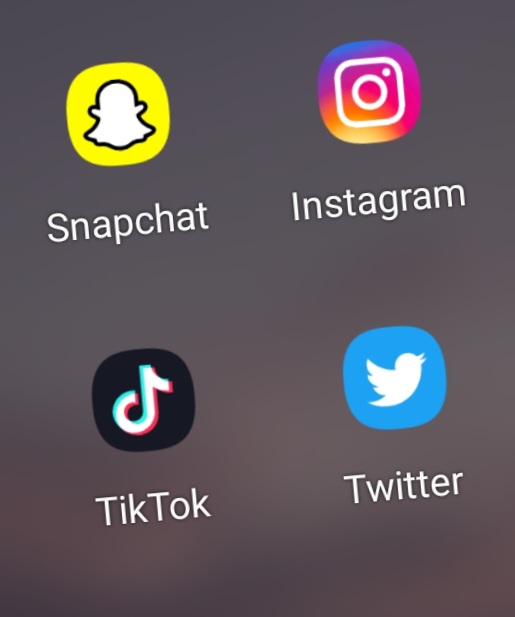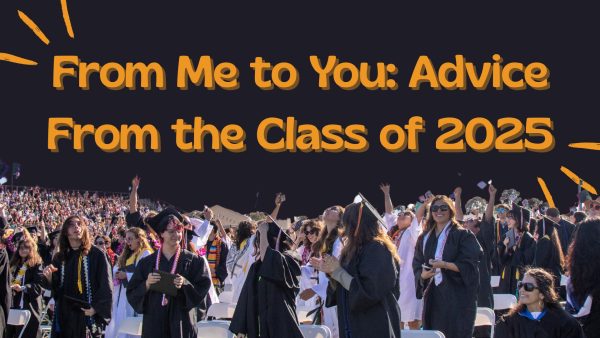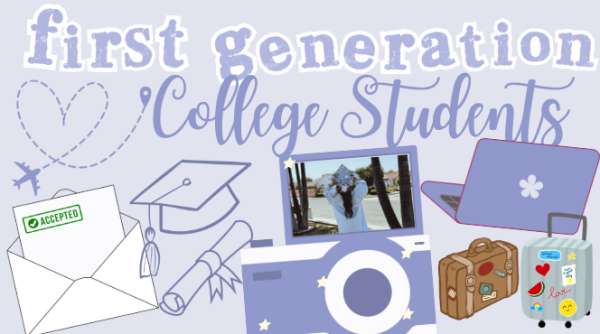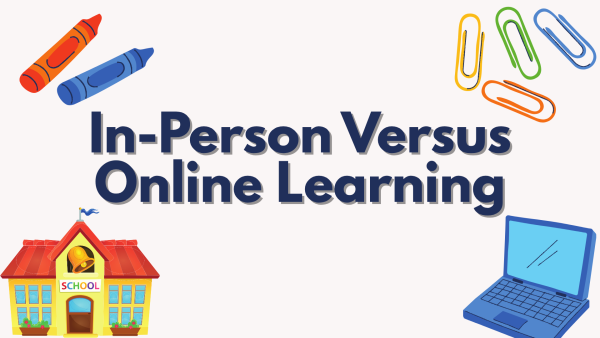How Social Media Affects Teens
In today’s society, adolescents are surrounded by social media and get lost in its effects. More often than not, social media can cause a shift in their outlook, insecurities to grow, and a change in self-image. Teens tend to succumb to peer pressure and change themselves to fit the standards of society. But, despite all the negatives, there are also positive aspects. Social media allows teens to keep up with current events, spread ideas, opinions, and connect with people.
In the article, “Social Media, and Teens: How Does Social Media Affect Teenagers’ Mental Health,” clinical social worker Katie Hurley says, “Time spent scrolling through social media apps and negative body image feedback. Studies also showed that the more time young adults spent on social media, the more likely they were to have problems sleeping and report symptoms of depression.” Hurley also mentions the issues of cyberbullying, making comparisons, and focusing on likes in the article.
Another article by the Mayo Clinic, “Teens and social media use: what is the impact?” states, “social media use can also negatively affect teens, distracting them, disrupting their sleep, and exposing them to bullying, rumor spreading, unrealistic views of other people’s lives and peer pressure.”
But what about the positive effects? The article by the Mayo Clinic says that social media can provide a support group and expose teens to current events. “These networks can provide teens with valuable support, especially helping those who experience exclusion or have disabilities or chronic illnesses. Teens also use social media for entertainment and self-expression. And the platforms can expose teens to current events and allow them to interact across geographic barriers,” the article says.
Hurley claims that social media can help teens communicate more easily and create support groups. “Teens who struggle with social skills, social anxiety, or who don’t have easy access to face-to-face socializing with other teens might benefit from connecting with other teens through social media. Teens in marginalized groups—including LGBTQ teens and teens struggling with mental health issues—can find support and friendship through the use of social media. When teens connect with small groups of supportive teens via social media, those connections can be the difference between living in isolation and finding support,” she states.
However, Michelle Pendergast, one of Huntington Beach High School’s school psychologists, says that social media can create a problem with low self-esteem and self-worth.
“If social media becomes an escape, where the user is neglecting other responsibilities (such as schoolwork or spending time with family and friends) then it can harm someone’s life,” she said. “Social media users can sometimes skew their reality in posts to only reflect the happy, positive moments and if the user is bombarded with images that seem to imply everyone else has a perfect life, that can create a feeling of “less than” or “not good enough” which could have a strong negative effect on self-esteem and self-worth in the long run,” Pendergast added.
Danielle Ito, a junior here at HBHS, and says social media can change our viewpoints and body image. “Social media affects how we perceive ourselves and those around us. Especially from a woman’s perspective, social media remains the perfect catalyst for distorted beauty standards designed upon misogynistic expectations and emotional degradation. With the creation of Instagram emerged the job title of “Instagram model” and sadly, young girls and individuals around the world define their worth by comparing themselves to those on the Internet. The lack of diversity and inclusivity on social media influences a person’s perception of themselves by constantly telling them that according to society’s standards, they are not good enough. Instead of focusing upon ourselves and personal growth, social media users toxically compare their progress to everyone else’s,” Ito said.
Ito also said, “Social media also negatively influences people’s opinions and viewpoints by enforcing conformity and popularity as determining factors in personal opinions. They often become inclined to imitate them if they are “popular” on social media. Too many people correlate the number of followers, likes, comments, or views with another individual’s importance, which can distort reality and distract from real issues occurring in the world around us. Too many people decide their worth by comparing themselves to other people. Social media fuels this depressing, yet normalized, mindset and encourages individuals to change for the approval of others.”
Bella Bruno is a sophomore here at Huntington, and she has voiced that social media can be a distraction. “I can easily get distracted, and I could spend hours on end scrolling through looking at random things. think sometimes social media gets in the way of homework, I know for me especially I’ll go onto Instagram and I’ll be like, oh, I just need to answer a quick message, and I end up being on there for 30-40 minutes,” Bruno stated.
Bruno also thinks that it can affect people’s viewpoints on certain topics. She said, “I definitely think that social media can change someone’s perspective. Creators that have platforms use their platforms to spread awareness about certain topics, and this could lead to people switching their viewpoints because of what their favorite creator thinks. I think people might be more prone to change because we have gone through so much change in the past few months. I do also think people are more from other people and some people can be very persuasive.”
Moe Caruso is also a junior here at Huntington, and she believes that social media can greatly affect the mindset of someone. “Social media, such as Instagram and Snapchat, affects the mindset of many teens because it is easy to get wrapped up in the idea that you wish you were living in someone else’s shoes based on their posts because you forget that most people only post the best parts of their lives,” Caruso said.
Caruso also said that social media can also positively affect someone’s mindset. “For instance, the rise in cancel culture and the quickness of people to band together for or against any topic after a viral post has made social media an extremely powerful tool that will most likely shape the future in this generation’s decision making and opinions on topics,” Caruso stated.
Kyle Shin is a sophomore here at Huntington, and he has said that social media can change the way we view people and the world. “I believe it changes the way we view people, and ourselves, because some people validate their self worth on how many likes or followers they have. Yes, especially with the way the media portrays certain viewpoints and topics. For instance the presidential election, political parties, and other issues going on in the world. However, it also allows people to be educated on topics that can change their viewpoints. People are definitely influenced by others and social media. With the constant exposure from friends and posts about certain subjects, it can definitely influence someone’s mind,” Shin said.
Shin has also spoken about how it allows him to communicate with others. “It has allowed me to easily communicate with my friends from different countries, as well as share a laugh over simple jokes,” he stated.
Allyson Schlosser, a sophomore at Huntington, mentioned that social media has affected her life in both positive and negative ways. She said that it has allowed her to communicate with others and share her life. “To start with the positives, it is a way for me to communicate with others, share certain parts of my life, and see new things. I think some of the great things about it is the fact that you can share your life for other people to see and also see other peoples’ lives. Also, it is a way to support your friends or people you know. A lot of people make connections and relationships online and it can be a great way to make friends. I also think it is cool that people can use their platform for awareness on certain topics that they stand for. In addition, social media can give me a lot of motivation,” Schlosser said.
However, Schlosser said that social media can negatively affect and influence her life too. “There are also many negative parts of social media. Going back to the opinions, it has influenced my viewpoints in negative ways. I am aware this is ultimately my fault for believing things however I still think it had a huge effect. Also, it is highly addictive. My main struggle was Tik Tok because I would spend “10 minutes” on there and then realize I had actually been scrolling for 2 hours,” Schlosser said.
Lastly, Grace Ng is a junior at HBHS and she said that social media has allowed her to communicate with people, especially with the pandemic going on. “However after the pandemic started I think social media helps everyone stay connected during these terrible times. It allows me to get in contact with all my friends and keep up with what they’re doing so I don’t lose contact with them. It has affected me negatively because sometimes it can be hard seeing my friends go out when I may not be able to go due to Covid reasons. However, I do believe social media is a necessity in a way of staying connected,” she said.
Social media, like many other things, has its pros and cons, but the way it affects you is up to you.
Your donation will support the student journalists of Huntington Beach High School. Your contribution will allow us to cover our annual website hosting costs.
Thank you for supporting our program!







